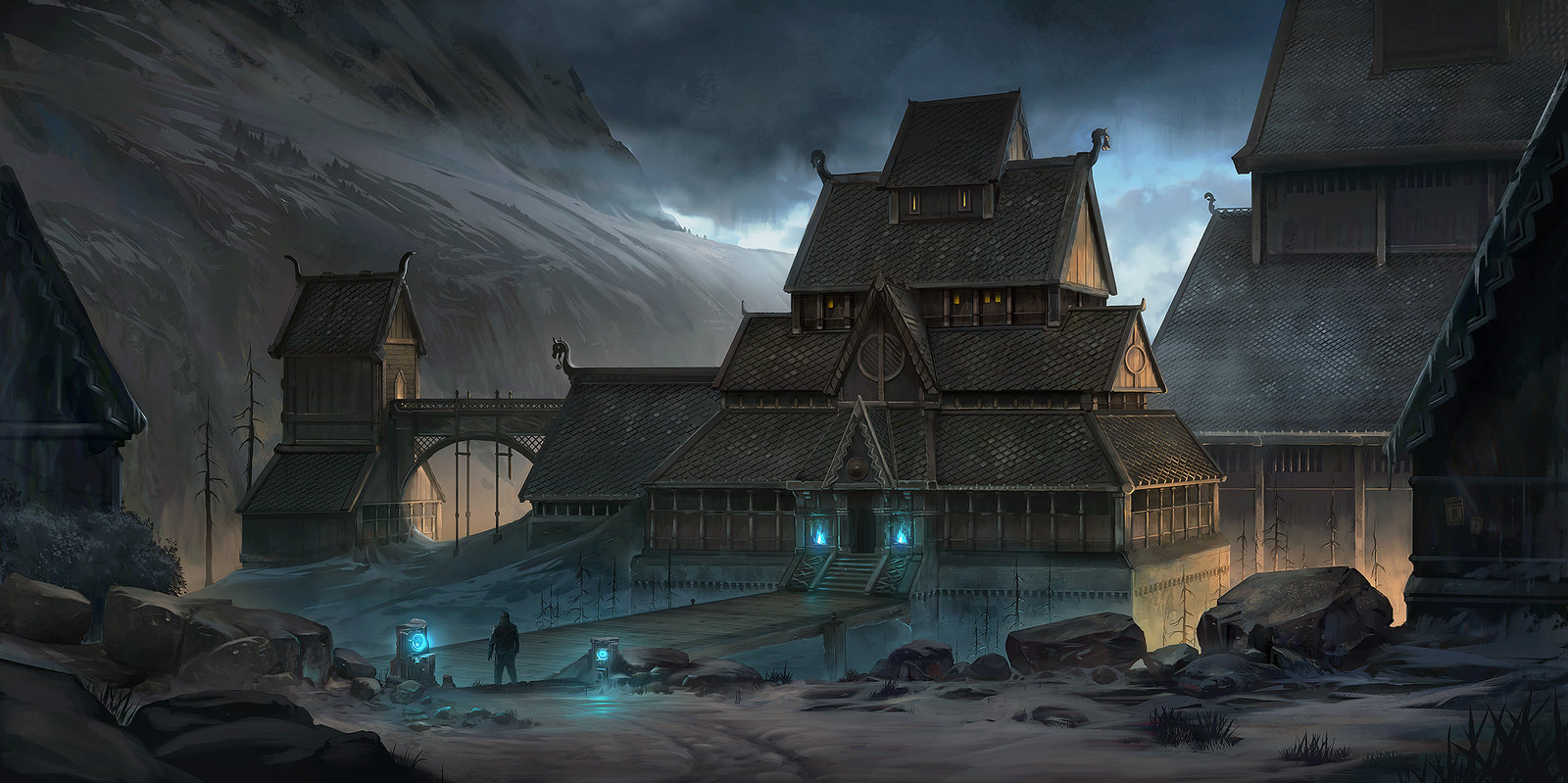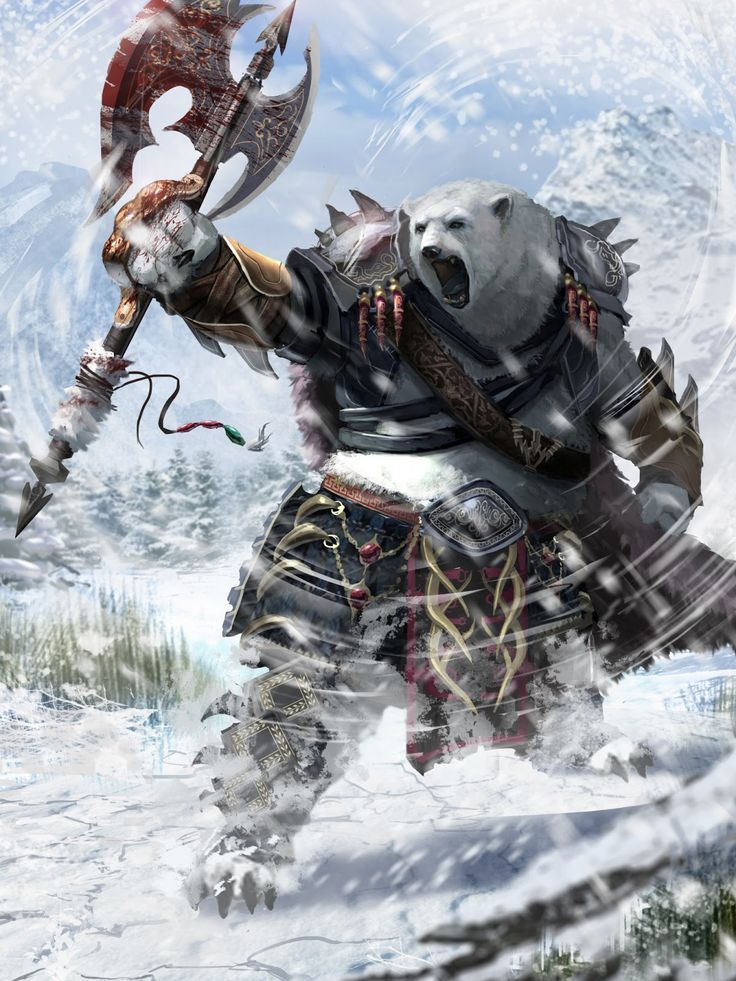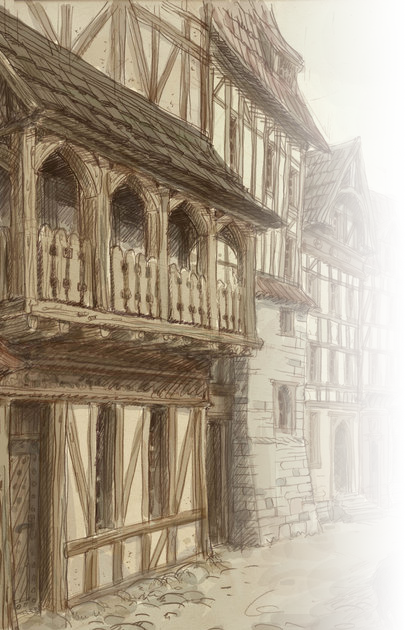Nordurriki
The Nordurriki "The Northern Rule"
The Nordurriki have learned, by necessity, to thrive in the harsh environments of the Peaks of Winter and the Icemane Forest. They have learned to sail the howling cauldron, and survive the Issen Sea. The Nordurriki met the challenge of the most inhospitable environments Melamar had to offer and surmounted them. To the outsider, the Nordurriki civilization may seem harsh and unforgiving, but it was this culture that allowed the Keldar and Yursida to work together to throw off the yoke of bondage to the Frost Lords, and survive.
"The Peaks of Winter have taught us to be stolid, The Everfrost has taught us to be inevitable, and the Frost Lords have taught us the value of freedom." Jarl Felborg Bearclaw
Religion
While Nordurriki are free to worship whom they will, most worship Biera. Their stark existence and warrior culture, along with their native environments all pay homage to him in some way. The Norurriki believe that Biera gave no favor to his people, but rather carved them from the mountains, and then dared them to survive. The Nordurriki refer to their lands as "The Forge," and require their young to survive in its environs without supplies during the harsh winter. Those that survive are welcomed as warriors and members of Nordurriki society. Those who die are believed to have been purged by Biera. They are never sought out, nor are given funeral rites, for they were found unworthy.
Keldar - Former Slaves
Carved carefully on the runestones of Fjellborg (Fyell-borg) remains the earliest record of Keldar enslavement by the Frost Lords, a kingdom of Snojotunn (sno-yo-ton) and Fjelljotunn (fyell-yo-ton), giants seeking dominion over all within the region. Discovering the young, primal Keldar race within the Peaks of Winter who were still in the process of learning and growing, the Frost Lords thought nothing of enslaving the urchin race, quickly adapting them to perform whatever tasks needed. The record tells of nearly 400 years of a downtrodden people without hope until Astrid Solveig lead a revolt, winning freedom for her people.
Yursida - The Hunted
Unlike the Keldar, the Frost Lords viewed the Yursida as meat to be hunted, ferocious prey capable of fighting back, yet intelligent and crafty when in their native terrain. Every year, the Frost Lords would hunt during the fall season, seeking food to carry them through the winter. For generations the Yursida were hunted by the Frost Lords, little realizing that the Yursida offered volunteers to be hunted whilst the majority of their people remained safe in their mountain homes hidden by the power of their shaman. Those volunteers, often the old or infirm, counted it an honor to die in such a way, battling the age-old Frost Lords, and preserving their people for yet another year.
Revolution
When the Keldar rose against the Frost Lords, the Yursida recognized the opportunity they represented. Though it was not without adversity, most Yursida clans voted to ally themselves with the Keldar in an effort to throw off the dominion of the Frost Lords once and for all. The Yursida clans, much more numerous than the Frost Lords ever realized, bolstered the Keldar ranks, crushing the Frost Lords, and driving them back and across the Venturis Sea.
Naval Might
After the formation of the Nordurriki, they quickly realized that the bounty of the sea had the most reasonable hope of providing the sustenance needed for their people, but what began as a simple fishing fleet grew as the Nordurriki gained a surprising love for the sea, and a knack for building the stout vessels necessary for weathering the unforgiving and icy seas of the south. In four separate naval campaigns, two against the Frost Lords, one against an enemy they only knew as "The Burning Ones," and once against Gath when they initiated a brief campaign of conquest against the Nordurriki, the Nordurriki navy firmly and decisively defeated each enemy. Since then, Nordurriki vessels became highly sought after, though seldom sold - and never military vessels. In addition, Nordurriki trading vessels are typically avoided by both privateers and pirates.
Raiding & Mercenary Work
A byproduct of the Nordurriki's naval power was a booming trade of both raiding coastal villages of their enemies on a yearly basis, as well as mercenary work. The Tribune, realizing that this could serve as both a way to keep the skills of their reavers sharp, formed two special naval units: two for the purposes of raiding, and two for the purposes of mercenary work.
Races
MilitaryFactions |
Nordurriki FoodNordurriki Views on NathrTraditionsReligionTermsHistory |





